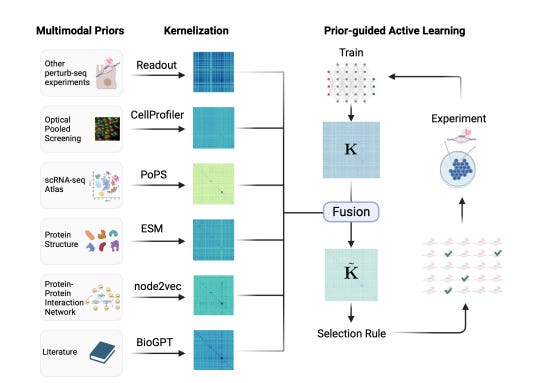Sequential Optimal Experimental Design of Perturbation Screens Guided by Multi-modal Priors
Inventors & their inventions
Axial: https://linktr.ee/axialxyz
Axial partners with great founders and inventors. We invest in early-stage life sciences companies such as Appia Bio, Seranova Bio, Delix Therapeutics, Simcha Therapeutics, among others often when they are no more than an idea. We are fanatical about helping the rare inventor who is compelled to build their own enduring business. If you or someone you know has a great idea or company in life sciences, Axial would be excited to get to know you and possibly invest in your vision and company. We are excited to be in business with you — email us at info@axialvc.com
Out of Genentech, the paper proposes a sequential approach for efficiently designing Perturb-seq experiments. Perturb-seq is a method to study how genetic perturbations like gene knockdowns affect gene expression in single cells. However, the number of potential perturbations is vast, exceeding experimental capacity.
The authors develop an active learning strategy called ITERPERT to select the most informative perturbations to profile experimentally in each round, in order to maximize prediction accuracy with fewer experiments. ITERPERT incorporates diverse prior knowledge sources like additional Perturb-seq data, gene networks, and literature to address the problem of "active learning on a budget". Experiments showed it reached comparable accuracy to baselines with 3 times fewer profiled perturbations.
The key part the work does is introducing the idea of sequential optimal design for Perturb-seq experiments through an active learning approach guided by multi-modal prior knowledge. ITERPERT demonstrates significantly improved efficiency in exploring the vast perturbation space with real experiments.


